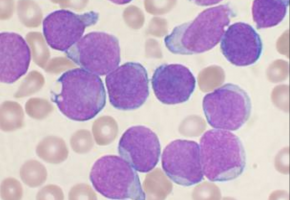
Researchers from Instituto de Medicina Molecular (iMM) João Lobo Antunes have found a mechanism through which certain types of leukaemia resist chemotherapy, thus revealing novel molecular targets that may be used to improve the efficiency of this type of treatment.
In patients with acute myeloid leukaemia, cancer cells resist the effects of chemotherapy, many times resulting in disease recurrence and ultimately death.
The team, led by Sérgio Dias, had previously shown that leukaemic cells activate certain molecular signals, namely a cell signalling pathway controlled by the Endothelial Vascular Growth Factor (VEGF), which allow cancer cells to survive despite chemotherapy.
The work, now published in the journal Cancer Research, revealed that a metabolic alteration at the mitochondrial level derived from VEGF's action is involved in chemotherapy resistance.
By creating an experimental model of leukaemia in mice whose cancer cells were resistant to chemotherapy the team was able to characterise these cells' metabolic profile and observed certain modifications at the level of the mitochondria.
Using drugs that specifically blocked VEGF's activation, it was possible to revert these mitochondrial modifications and render these cells vulnerable to chemotherapy.
"Our study contributes to an improved understanding of how cellular metabolism plays an important role in the acquisition of resistance to certain therapeutic agents," said Sérgio Dias.
These newly discovered molecular targets will allow the development of therapeutic strategies that may be explored as possible routes to eliminate leukaemic cells' resistance to chemotherapy.
Source: Instituto de Medicina Molecular